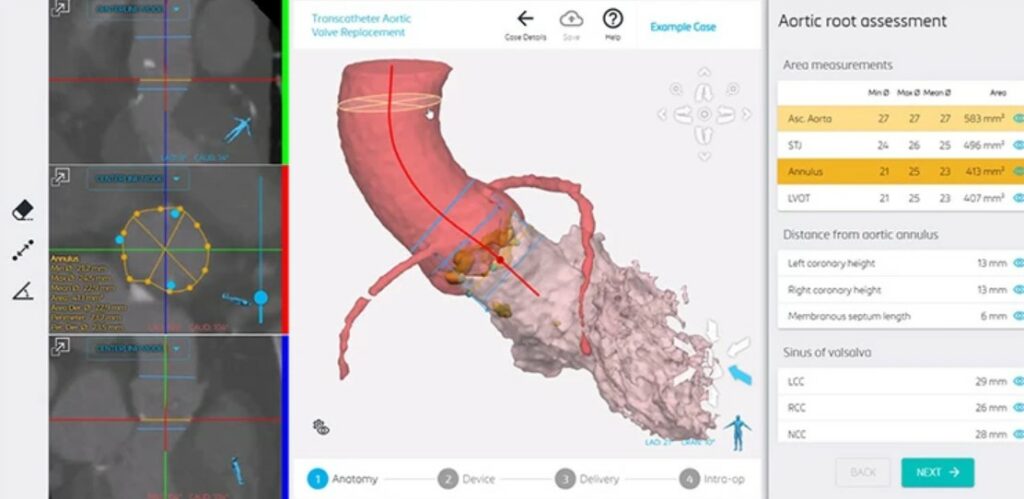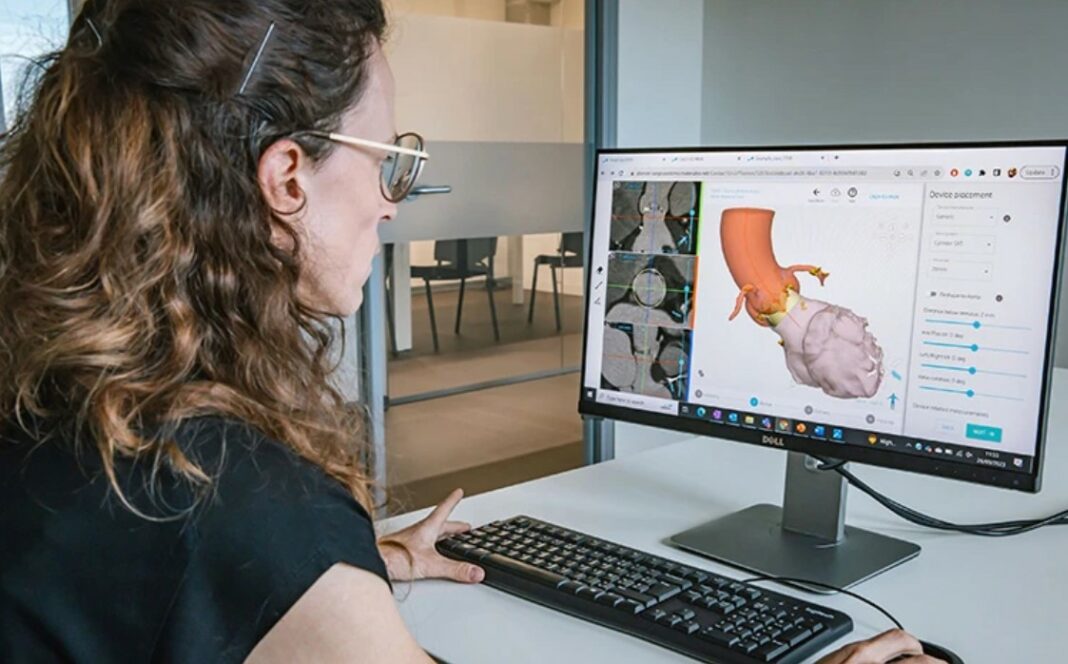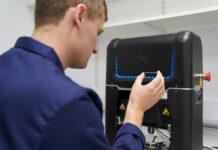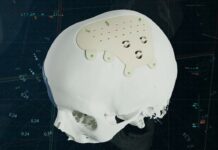Historically, transcatheter procedures were reserved for the most complex cases and high-risk patients, but these procedures are becoming more common today. However, challenges remain in evaluating patient eligibility for transcatheter interventions and assessing potential risks and adverse events. Enhanced visualization and simulation technologies are essential in improving the clinical workflow, thereby expanding the availability of transcatheter procedures to a broader range of patients and improving overall outcomes.
FEops, a Belgian company that develops AI-driven simulation technology to improve procedure efficiency and clinical outcomes for structural heart interventions, allows clinicians to more accurately predict how transcatheter structural heart devices will interact with a patient’s anatomy.
The company has now become a Materialise company which means its solution will be integrated into Materialise’s Mimics Planner for Structural Heart Interventions.
Designed for segmentation and anatomical analysis, planning, and design, the Mimics Planner enables the creation of accurate virtual 3D models based on medical image data.

With the integration of FEops, the Mimics Planner will offer a comprehensive solution for anatomy-based 3D planning and AI-based simulation, allowing clinicians to simulate the interaction between a medical device, such as a heart valve, and a patient’s unique anatomy. This advancement is set to transform patient care for structural heart diseases by offering a more interactive and AI-based solution for preparing heart procedures.
“At Materialise, we are pioneering the advent of mass-personalization in healthcare, using advanced visualization and 3D printing technologies to deliver precise, patient-specific solutions,” said Brigitte de Vet, CEO of Materialise. “By integrating FEops’ advanced predictive simulation technology with our Mimics Planner, we are expanding our cardiovascular solutions to provide clinicians with comprehensive insights into patient anatomy. This integration will not only enhance the accuracy and efficiency of structural heart interventions but also improve clinical outcomes and patient safety.”
The acquisition allows the 3D printing giant to expand its cardiovascular solutions with predictive simulation capabilities, advancing the personalized treatment of patients with heart diseases.
While the amount of the deal has not been disclosed, we can’t help but think that it strengthens Materialise’ position as a MedTech company.
Remember, you can post job opportunities in the AM Industry on 3D ADEPT Media free of charge or look for a job via our job board. Make sure to follow us on our social networks and subscribe to our weekly newsletter : Facebook, Twitter, LinkedIn & Instagram! If you want to be featured in the next issue of our digital magazine or if you hear a story that needs to be heard, make sure to send it to contact@3dadept.com






